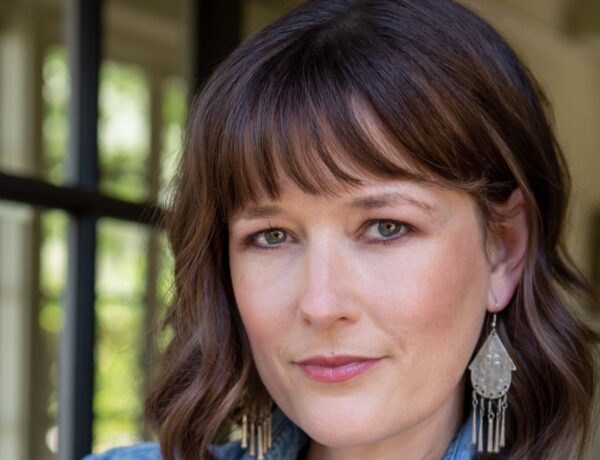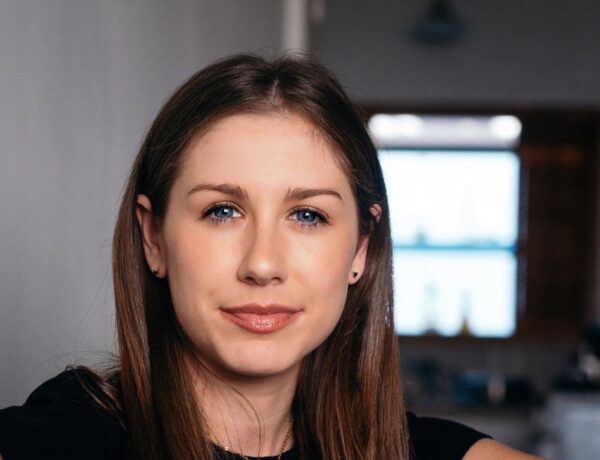Hermione grew up in Bromley, in south London, and graduated from the University of Cambridge in 2007 with a double first in English Literature.
After working on the Observer’s New Review she moved to New York in 2010. She has written for the Guardian, the New Yorker, the New York Times, Harpers, and others. She has also interviewed hundreds of cultural figures including Toni Morrison, Naomi Campbell, Laurie Anderson, Debbie Harry and Genesis Breyer P-Orridge.
Her debut novel, Neon in Daylight, a two-times New York Times editors’ choice, is published by Catapult in the United States and Weidenfeld & Nicolson in the United Kingdom. Her second novel, Virtue, is published by Riverhead Books.
She’s taught in the creative writing department at Columbia University, the MFA program at Southern New Hampshire University, and regularly teaches advanced fiction workshops at Catapult. For several years she’s been a mentor with Girls Write Now, a non-profit organization that serves at-risk girls from New York City public high schools. She’s represented by Marya Spence at Janklow & Nesbit and lives in Boulder, CO, with her partner Benjamin Kunkel.
Each week, we publish a new daily writing routine from a famous author. Subscribe to our newsletter so you don’t miss out!
Hi Hermione, we’re excited to have you here with us today to talk writing routines! For those who may not know, can you please tell us a little bit about yourself?
Thank you for having me! I’m neither famous nor have much of a routine, but I am a writer! –One outta three. I’m the author of two novels, one I’m ashamed of that got more press than it deserved, Neon in Daylight, and one I’m prouder of that got less attention, Virtue. The latter was published by Riverhead books last summer.
One engine for that book was the competing and possibly mutually exclusive meanings of ‘the good life’: on the one hand the life of pleasure, comfort and ease, and on the other, a life of civic duty and political engagement. How does a person reconcile the small world with the big world? Which all sounds rather portentous: I also hope the novel is funny and fun, and the sort that a reader can chomp through in one sitting.
My friend Sheila strained her eyes by reading it all night on her phone and I consider that the greatest compliment. (Her eyes recovered.) I’m knee-deep in a third novel now. Trying to say what it’s ‘about’ feels a bit like throwing out a series of hashtags, but I can tell you that it involves Hollywood celebrity, enduring friendship, and unrequited love. And it’s British, which is a departure for me.
I grew up in the suburbs of London, moved to New York in 2010, and now live with my partner Ben in Boulder, Colorado. (I never thought I’d own a single item of Patagonia-branded clothing but here I am, a hiker and a trail runner. Life is wild.)
Can you take us through the creative process behind your debut novel, Neon in Daylight?
That phrase suggests something noble and intentional but I mostly remember drawn-out wretchedness! It was a slow, inefficient, doubt-logged many years of bashfully writing little bits and pieces which eventually – thanks to the faith and encouragement and talents of my agent, Marya Spence, and of my editor, Jonathan Lee – coalesced into a book.
I moved to New York in 2010 and suddenly had two things I’d never had before. One, free time. Two, a sense of electrification; I was (still am) rhapsodic about that city. That place and its people, possibilities, intensities, made my fingertips itch with a wish to make sentences.
Very gradually, I started putting scraps into a google doc, and those ignoble scraps eventually became a novel. I’d go to a café each morning in my neighborhood and work there for a week or so until I’d worn out the magic and had to find a new place. It was sort of like crop rotation and fallow fields.

What does a typical writing day look like for you?
One trick is to ride out that wave of waking hypnagogia for as long as possible, so that writing feels as uninhibited, free-flowing, and open to accidental magic and resonances as dreaming. In other words, roll right out of bed, wordlessly and swiftly put coffee into my system, open up my laptop and start typing before I’ve even blinked or yawned. That’s the theory.
In practice, however, Ben brings me a cup of coffee, puts on a record, and I too much enjoy lying there talking with him, waking up slowly, addressing the cat, etcetera. I don’t check email and try not to even touch my stupid phone. Then I go upstairs to my office with a second cup of coffee, plug myself into Steve Reich’s “Music for 18 Musicians”, or some William Basinski, or some Chopin or something, and write for a few hours.
If it’s going badly, I tell myself “just one more half hour” and then usually I can push through into something that feels usable. If it’s still going badly, I tell myself that’s fine, it’s just part of it, and I make sure to go read something old and excellent in order to restore faith.
My main job, after all, is reading. All this is if I don’t have some other kind of deadline – I write about culture, especially books and music, so if I have a piece on the go, the morning has to be sacrificed to that. My brain kind of slows to a halt around two pm.
Do you have a daily word count that you like to hit each day?
Absolutely not! That way tyranny lies. For the same reason I don’t count laps when I swim or miles when I run. Writing can’t be quantified, and certainly not by word count. Deleting several paragraphs that aren’t working is a constructive act, as is writing just one brilliant line. I’d much rather that than arbitrarily hitting some daily target by writing several hundred bad words that only discourage you the next day.
How did the COVID-19 pandemic and lockdowns affect your routine?
The ostensible routine remained but there was a creative deadening. In part, because grief and sustained anxiety aren’t exactly great for cognitive function, but also because I’m an extrovert: I thrive on encounter, on being shaken up by people – both the charismatic and the fascinatingly repellent – so I malingered a bit in isolation even while noting, often several times a day, how fortunate our circumstances were.
I was also grateful to have edits to do on Virtue, to be occupied by that already-existing thing. I couldn’t imagine trying to start something new while the world was reeling in that way. The world is still reeling, of course, but in a slightly more legible way.
What does your writing workspace look like?
We’ve just moved house so right now it’s looking rather austere. I’ve yet to put pictures up and stuff. But I like to keep my desk completely clear except for my laptop, lamp, and, usually, a little vase of flowers. It sounds rather precious but I think having a bit of beauty in one’s line of vision is useful!
Before you go…
Each week, we spend hours upon hours researching and writing about famous authors and their daily writing routines. It’s a lot of work, but we do it out of our love for books and learning about these authors’ creative process, and we certainly don’t expect anything in return. However, if you’re enjoying these profiles each week, and would like to send something our way, feel free to buy us a coffee!



No Comments